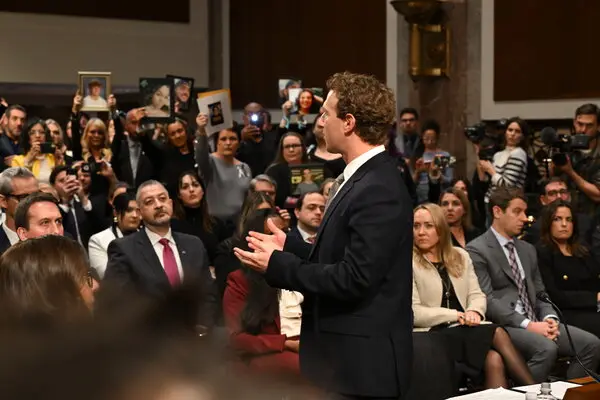In a powerful moment during a hearing on Capitol Hill, Senator Josh Hawley questioned Facebook CEO Mark Zuckerberg about the harmful effects of his platform on young users. Hawley specifically asked Zuckerberg about the alarming statistics that showed 37% of teenage girls between 13 and 15 were exposed to unwanted nudity on Instagram in a week. He demanded to know who had been fired and if any compensation had been provided to the victims.
Zuckerberg seemed reluctant to answer these questions, stating that he didn’t think it was appropriate to discuss internal decisions or compensation. Hawley continued to press him, highlighting the families of victims who were present at the hearing and deserved answers. He accused Zuckerberg of not taking any significant action to address these issues and failing to apologize to the victims. Hawley asked if Zuckerberg would take personal responsibility and set up a victims’ compensation fund using his own money, to which Zuckerberg provided evasive responses.
The hearing then shifted to a discussion about TikTok, which is owned by the Chinese company ByteDance. Hawley accused TikTok of surveilling Americans and giving access to user data to the Chinese Communist Party. He demanded to know why the platform should not be banned in the United States.
Zuckerberg denied Hawley’s claims, stating that they were not accurate and that TikTok had made progress in protecting data. However, Hawley presented evidence from The Wall Street Journal that showed TikTok employees in China still had access to private information of American citizens, including birth dates and IP addresses.

Hawley concluded by asserting that TikTok should be banned in the United States due to concerns about the security of American citizens’ data being in the hands of a foreign government. The hearing was a poignant and impactful moment, with Senator Hawley holding Zuckerberg and ByteDance accountable for the harmful effects and potential security risks associated with their platforms.
Overall, this hearing shed light on the challenges and concerns surrounding social media platforms and the need for stricter regulations to protect users’ safety and privacy. It remains to be seen how the findings of this hearing will impact the future of Facebook, TikTok, and online platforms in general.


Comments are closed